Index
Shukla Bose – Closing Keynote
Steve Davis – Opening Keynote
Jeanette Duffy – Saturday Keynote – UNICEF Kid Power – Introducing the First Wearable-For-Good
Paul Mitchell – Evening Keynote
Alex Moseson – Closing Keynote — The Global Innovation Exchange: By You, For You
Nancy Sclater – Dinner Keynote — “Creating a Global Network to Impact Global Health”
William L. Stefanov – Dinner Keynote — “Earth Observations from the International Space Station: Benefits for Humanity”
Jackie Stenson – Welcome Keynote
Maurizio Vecchione – Opening Keynote — “Saving Lives through Invention”
SHUKLA BOSE
Founder-CEO
Parikrma Humanity Foundation
Bangalore, India
Closing Keynote
Bio:
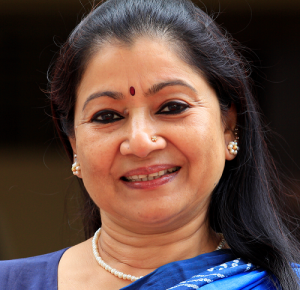 Shukla Bose has a rich corporate experience of 26 years in the hospitality industry. She has done Masters in Comparative Literature and a MBA specializing in marketing. She has also done a management program at the George Washington University on social entrepreneurship.
Shukla Bose has a rich corporate experience of 26 years in the hospitality industry. She has done Masters in Comparative Literature and a MBA specializing in marketing. She has also done a management program at the George Washington University on social entrepreneurship.
She was with Oberoi hospitality group for 13 years and was the CEO of RCI for 11 years. In 2000 she gave up her high profile corporate position and started the India operations of a multinational NGO working with children. She volunteered with Mother Teresa for 7 years. Her experience with slum and street children greatly encouraged her to make the development of under-served children as her mission in life. She therefore started Parikrma Humanity Foundation a NGO that runs four schools and one junior college that provides quality English medium education to 1700 orphaned, abandoned, slum and street children. Parikrma has also partnered with Bangalore Corporation to enhance the quality of education of 18 government schools.
Shukla is the recipient of many national and international awards. She was awarded the Entrepreneur of the Year Award in 1995, the Bharat Gaurav Award in 1996 and the Woman of the Year award in 2000.
Shukla has been invited to speak at several Indian and international conferences on social entrepreneurship and global education. She is also a TED speaker.
Parikrma Humanity Foundation has been awarded the Derozio Award for excellence in special education and social commitment. Parikrma also received the Governor’s award for exemplary social work in January 2007. Shukla Bose was nominated as a Bangalore Hero in the recent Bangalore Mirror campaign.
Steve Davis
President and CEO, PATH
Opening Keynote — “Reimagining what’s possible: global health innovations to transform our world by 2030”
Abstract:
How do you advance the best new social innovations to reach the hundreds of millions of people who need them the most? PATH’s 40 years of experience working in more than 70 countries to develop and deliver vaccines, drugs, diagnostics, devices and tools, and system and service innovations offer valuable insight about what’s needed to make an impact. We’ll showcase the next generation of high-impact technologies and interventions that can transform global health, and highlight what innovators around the world can do to save the lives of women and children.
Bio:
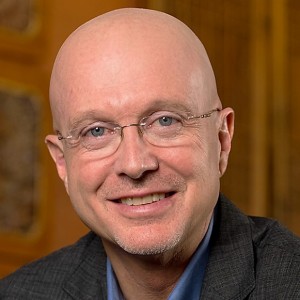 As president and CEO of PATH, Steve Davis combines his extensive experience as a technology business leader, global health advocate, and social innovator to accelerate great ideas and bring lifesaving solutions to scale. He oversees PATH’s work of driving transformative global health innovation to save and improve lives, reaching 219 million people in 2013.
As president and CEO of PATH, Steve Davis combines his extensive experience as a technology business leader, global health advocate, and social innovator to accelerate great ideas and bring lifesaving solutions to scale. He oversees PATH’s work of driving transformative global health innovation to save and improve lives, reaching 219 million people in 2013.
Davis’ commitment to human rights and global development grew from his early work on refugee programs and policies, and from his later focus on Chinese politics and law. He has been a leader and strategist for a range of private and nonprofit organizations, including as CEO of the global digital media firm Corbis, director of social innovation for McKinsey & Company, and interim CEO of the Infectious Disease Research Institute.
Davis is a member of the Council on Foreign Relations (CFR), serves on the boards of InterAction and Global Partnerships, and sits on several advisory groups, including the World Economic Forum’s Global Agenda Council on Social Innovation and the Clinton Global Initiative’s Global Health Advisory Board.
Davis earned his BA from Princeton University, his MA in Chinese studies from the University of Washington, and his JD from Columbia University.
Jeanette Duffy
Deputy Director, Cause Platforms, UNICEF Ventures
Saturday Keynote — “UNICEF Kid Power – Introducing the First Wearable-For-Good”
Abstract:
UNICEF Kid Power gives kids the power to save lives. By getting physically active with the UNICEF Kid Power band, kids earn points, which unlock therapeutic food packets for malnourished children around the world. With the Kid Power Band empowering kids to get active and save lives, its no wonder one Boston student last spring told his mom, “I’m leaving early. Gonna take the stairs, gotta feed the world”
In just its second year, UNICEF Kid Power—the U.S. Fund for UNICEF’s latest cause platform—is slated to bring the UNICEF Kid power Band—the first wearable-for-good—to a U.S. retail audience, while also scaling its philanthropically based school model to 70,000 U.S. based kids. This talk will provide background on how the program’s adoption of current technology and agile development has allowed for the rapid scaling of a product in a non-profit setting. I’ll also focus on how UNICEF Kid Power has also proven to be a win for both domestic and global agendas for the U.S. Fund for UNICEF, from its ability to engage new sponsors and potential to be a desirable replicable program across developed and developing countries.
Bio:
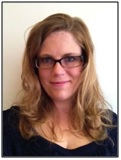 Jeanette Duffy is a youth engagement expert and design thinking professional. She currently works with UNICEF Ventures at the U.S. Fund for UNICEF, developing new, collaborative models to educate about and advocate for UNICEF’s work doing whatever it takes to save and protect the world’s most vulnerable children. Her latest venture is UNICEF Kid Power–a movement powered by kids using the first wearable-for-good to get kids physically active to save lives.
Jeanette Duffy is a youth engagement expert and design thinking professional. She currently works with UNICEF Ventures at the U.S. Fund for UNICEF, developing new, collaborative models to educate about and advocate for UNICEF’s work doing whatever it takes to save and protect the world’s most vulnerable children. Her latest venture is UNICEF Kid Power–a movement powered by kids using the first wearable-for-good to get kids physically active to save lives.
Jeanette is the co-creator of the Big Ten Network’s BTN LiveBIG, and developed the Office of National Drug Control Policy’s Above the Influence toolkit of activities. Previous partners also include the Network for a Healthy California, the Robert Wood Johnson Foundation and the Connecticut Health Foundation.
Prior to UNICEF Ventures, Jeanette worked with GALEWill Design, a for-purpose company that designs social change programs, communications and actions. Jeanette began her career at NBC Universal, in the NBC Page program. She went on to work in television and film development, honing the creative and strategic skills she now uses in a career dedicated to social good. Jeanette has a BA from Binghamton University and an MPA from Baruch College.
Paul Mitchell
General Manager, Technology Policy at Microsoft Corporation
Evening Keynote
Bio:
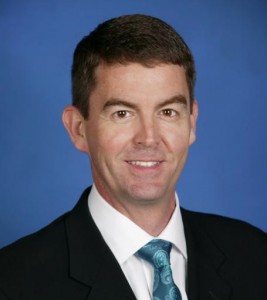 Paul Mitchell assumed his current role in July 2011. He is responsible for strategic technology policy initiatives in the areas of spectrum, telecomm, and Internet governance. He has championed Microsoft’s efforts to advance flexible spectrum regulations allowing for dynamic sharing, and developing innovative access networks leveraging television white spaces around the world.
Paul Mitchell assumed his current role in July 2011. He is responsible for strategic technology policy initiatives in the areas of spectrum, telecomm, and Internet governance. He has championed Microsoft’s efforts to advance flexible spectrum regulations allowing for dynamic sharing, and developing innovative access networks leveraging television white spaces around the world.
Prior to his current position Mr. Mitchell held a variety of senior positions including General Manager, Interoperability and Standards, and General Manager of Policy and Standards with Microsoft’s Entertainment and Devices Division.
His career also includes significant work related to digital and interactive television beginning with Microsoft’s early trials of an Interactive TV system in the U.S. and Japan and followed by work developing standards for digital television in advance of the U.S. DTV transition. He held several roles in the Microsoft TV division including Chief of Staff and General Manager of the Tools and Applications Product Unit.
Mr. Mitchell joined Microsoft in 1991 as a product manager in the Developer Tools Division, where he helped secure developer adoption of Microsoft’s professional C and C++ products launching Microsoft C7, Microsoft Visual C++, and Microsoft Visual C++ for Windows NT.
Mitchell serves on the ITU/UNESCO Broadband Commission, on the board of the United States Telecommunications Training Institute, and on the advisory board for the Evans School at the University of Washington. He has previously served on the board of directors of BET.com, the Alliance for Telecommunications Industry Solutions, and Vision TV and SVOX in Canada.
He holds an MPA from the Evans School at the University of Washington.
Alexander J. Moseson, Ph.D.
AAAS Science & Technology Policy Fellow at USAID / U.S. Global Development Lab / Higher Education Solutions Network (HESN)
Closing Keynote — “The Global Innovation Exchange: By You, For You”
Abstract:
You have the power to change the world. The Exchange can help. The Global Innovation Exchange (GlobalInnovationExchange.com) was born out of countless conversations across more than 40 partners and built to advance critical issues around development. It is a community of innovators, collaborators, and funders; its tools are totally free. The Exchange is brand and innovation agnostic. Everyone on the Exchange is equal and brings what they do best to the Exchange.
Bio:
 Presenter Alex Moseson, a core Exchange team member, Bill & Melinda Gates Foundation grantee, and AAAS Fellow at the U.S. Global Development Lab will share how to get the most out of this platform. With case studies on the Lab’s Higher Education Solutions Network (HESN) and beyond, he will share best practices and industry trends to shape your applications to the $200+ million in funding opportunities on the Exchange, as well as, your current projects and programs.
Presenter Alex Moseson, a core Exchange team member, Bill & Melinda Gates Foundation grantee, and AAAS Fellow at the U.S. Global Development Lab will share how to get the most out of this platform. With case studies on the Lab’s Higher Education Solutions Network (HESN) and beyond, he will share best practices and industry trends to shape your applications to the $200+ million in funding opportunities on the Exchange, as well as, your current projects and programs.
NANCY SCLATER
Centennial President, Seattle Rotary
Dinner Keynote — “Creating a Global Network to Impact Global Health”
Abstract:
Five years ago, Bill Gates, Sr. challenged Seattle Rotary to eradicate malaria. Based on Rotary International’s success in reducing active polio cases, Mr. Gates urged Seattle Rotary to launch a project that would rid the world of the most prolific killer – malaria.
Serving as the Centennial President of the world’s largest Rotary Club, Ms. Osborne Sclater launched a Second Century Project to reduce and ultimately eliminate malaria.
In five years, the project has saved 250,000 from certain death, significantly reduced suffering, and lost economic productivity through a dramatic reduction in malaria cases. To insure sustainability, a network of social service organizations, local and international businesses, global organizations, and governmental agencies working together to the end of a disease that has plagued mankind for over 500,000 years.
Bio:
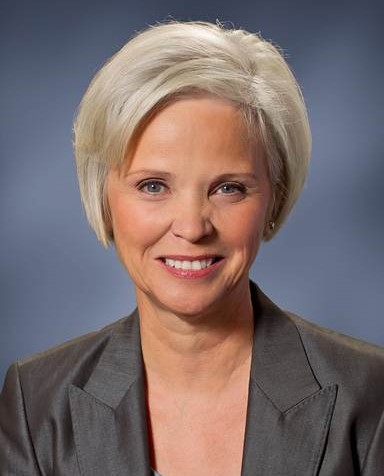 Nancy O. Sclater has held senior executive and leadership positions spanning board directorships, as well as in corporate, government, and academic institutions during a career distinguished by creating new partnerships to accelerate synergy and achieve mission success. Ms. Sclater spearheaded collaboration among health care institutions, governments and global agencies to advance medical research and to champion health care services locally and globally.
Nancy O. Sclater has held senior executive and leadership positions spanning board directorships, as well as in corporate, government, and academic institutions during a career distinguished by creating new partnerships to accelerate synergy and achieve mission success. Ms. Sclater spearheaded collaboration among health care institutions, governments and global agencies to advance medical research and to champion health care services locally and globally.
Since 1996 Ms. Sclater has served as a Principal of Pinkerton Brown – a full service consulting firm that counsels leading institutions on strategic execution, governance, compliance, capital development, advocacy, public policy, and communications. Ms. Sclater provides business acumen to healthcare organizations facing changes in their policy and economic environment, coupled with unwavering compassion for people who depend on those services.
Currently, Ms. Sclater serves a variety of local and international organizations immersed in healthcare delivery or support services all focused on improving access both individually or organizationally:
- Past Board Chair, Bloodworks – among the US’s five largest blood centers with a Research Institute that is the international leader and pioneer in blood research including stem cell and organ transplantation, in addition to other blood related diseases.
- Director, Creative Testing Solution – operating 5 laboratories testing one-third of the nation’s blood supply.
- Director, HemeXcel – comprised of the five largest blood centers in the US adapting efficiencies in blood product delivery; 4.8 million blood components annually serving 1388 hospital systems in 30 states.
- Past International Chair, Rotarian Malaria Partners (RMP) — a collaboration of organizations including Rotary Clubs internationally, global non-profits, African business leaders as well as African and the US government focused on the universal eradication of malaria. Now operating in three African countries, RMP has benefitted over 1,500,000 individuals and reduced the malaria burden by 85% in the project areas. Ms. Sclater served as the Centennial President of the Rotary Club of Seattle – the largest Rotary Club in the world (700 members) and the state’s largest organization of business leaders — and launched the malaria eradication project as Rotary’s Centennial initiative.
- Director, Pilgrim Africa – Uganda based program to eradicate malaria in the world’s most endemic region using innovative pilot programs funded by the Bill & Melinda Gates Foundation and others.
- Advisory Board Member, Primex Wireless – leading provider of wireless monitoring technology for markets including health care and education.
- Mentor, Women in Public Service Project (Wilson International Center) – Selected as a graduate of a women’s collage to mentor emerging female global leaders. Founded by former Secretary of State Clinton, the project convenes global conversations to educate women leaders through individual mentoring. Currently she is mentoring a Member of Parliament and attorney in an African nation, as well as a physical/journalist in Asia.
Ms. Sclater has been a longstanding champion of rights, programs and employment for vulnerable populations, receiving two gubernatorial appointments as state-wide Director of Public Education for Disability Planning. She was also Founding President and Executive Director of the Disability Fund to create increased access to health care. Other achievements include Founding President and Executive Director of Northwest Center Foundation (1989-2005) — the first organization in the U.S. to establish successful, competitive entrepreneurial businesses that provide paid employment to individuals with disabilities.
Ms. Sclater has received numerous awards including: Leadership Citation from Rotary International, Women of Impact Designee from the Junior League; Group Health Innovators in Health Care Award; Distinguished Service Award from Wellspring Family Services of King County; Top Ten Regional Leaders by The Seattle Times, and a Leadership Award from Childhaven. A frequent speaker on the health care innovation and reform, Ms. Sclater is a guest lecturer at universities and has been invited to provide expert testimony at U.S. Congressional, regional and state legislative hearings.
WILLIAM L. STEFANOV
NASA Johnson Space Center, Houston TX
Dinner Keynote — “Earth Observations from the International Space Station: Benefits for Humanity”
Abstract:
The International Space Station (ISS) is a unique terrestrial remote sensing platform for observation of the Earth’s land surface, oceans, and atmosphere. Unlike automated remote-sensing platforms it has a human crew; is equipped with both internal and externally-mounted active and passive remote sensing instruments; and has an inclined, low-Earth orbit that provides variable views and lighting (day and night) over 95 percent of the inhabited surface of the Earth. As such, it provides a useful complement to autonomous, sun-synchronous sensor systems in higher altitude polar orbits.
Beginning in May 2012, NASA ISS sensor systems have been available to respond to requests for data through the International Charter, Space and Major Disasters, also known as the “International Disaster Charter” or IDC. Data from digital handheld cameras, multispectral, and hyperspectral imaging systems has been acquired in response to IDC activations and delivered to requesting agencies through the United States Geological Survey. The characteristics of the ISS for Earth observation will be presented, including past, current, and planned NASA, International Partner, and commercial remote sensing systems. The role and capabilities of the ISS for humanitarian benefit, specifically collection of remotely sensed disaster response data, will be discussed.
Data collected from the ISS in response to IDC activations is reviewed by my group at JSC, then delivered to the USGS for distribution to the requesting country/agency for their use in developing products for disaster response and relief efforts. I can provide a general overview of the use of the ISS as a remote sensing platform, and how data has been used to characterize natural hazard events, with an update on future planned NASA sensors for the ISS.
Bio:
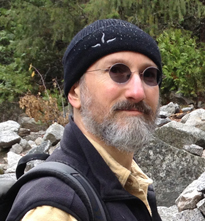 William Stefanov is the Associate International Space Station (ISS) Program Scientist for Earth Observations in the ISS Program Science Office at NASA Johnson Space Center (JSC). He works with the international partners and instrument science/operation teams to coordinate collection, distribution, and analysis of remotely sensed data from the ISS in response to catastrophic events such as volcanic eruptions, earthquakes, and flooding; provides subject matter expertise to the ISS Program, NASA Science Mission Directorate, and Center for the Advancement of Science in Space (CASIS).
William Stefanov is the Associate International Space Station (ISS) Program Scientist for Earth Observations in the ISS Program Science Office at NASA Johnson Space Center (JSC). He works with the international partners and instrument science/operation teams to coordinate collection, distribution, and analysis of remotely sensed data from the ISS in response to catastrophic events such as volcanic eruptions, earthquakes, and flooding; provides subject matter expertise to the ISS Program, NASA Science Mission Directorate, and Center for the Advancement of Science in Space (CASIS).
As NASA lead for the Earth Science and Remote Sensing Unit in the Astromaterials Research and Exploration Science Directorate at JSC, he oversees a group of specialists providing logistical support to the ISS program for NASA remote sensing assets on the ISS; operation and management of the Crew Earth Observations Facility on the ISS; and engaging in collaborative basic and applied research efforts focused on the Galveston Bay estuary and larger Gulf of Mexico with regional academic institutions, agencies, and other stakeholders. Dr. Stefanov also trains International Space Station astronauts in various Earth Science topics, and conducts research on land surface processes using remotely sensed data. His research interests include the use of visible through microwave remote sensing techniques to investigate urban and peri-urban geology/geohazards, climatology, and ecology.
JACKIE STENSON
CEO and co-founder of Essmart, Bangalore, India
Welcome Keynote — “Invention is not enough: A journey from engineer to disseminator, and back”
Hundreds of well-meaning organizations are inventing life-changing technologies for developing countries. They have solid engineering, catchy product photographs, compelling stories, and substantial funding. Unfortunately, very few of these inventions are achieving their intended impact. Products become trash; funding is wasted; user adoption rates are low. Mere invention is not enough.
Come hear one engineer’s journey from inventor to disseminator. Filled with broken water pumps, rusting bicycle ambulances, and copious amounts of hitchhiking, Jackie will explore how and why the technology-for-development inventions we idolize in the West often fail in emerging markets, and what you can do to make sure your technology inventions are not designed in vain.
Bio:
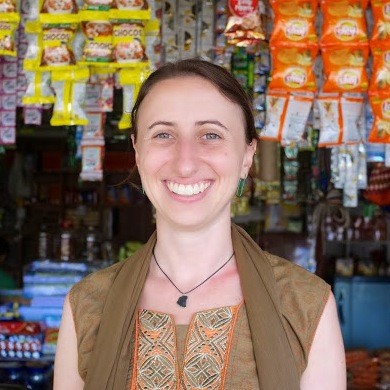 Jackie Stenson is CEO and co-founder of Essmart, a company that distributes life-improving Technologies in southern India. Based in Bangalore and an engineer by trade, Jackie, 28, started out designing technologies that could improve the lives of low income communities around the world whilst a student at Harvard. After working on technology-for-development initiatives in Africa and India for several years, she had her ‘Aha!’ moment: the real challenge is not the technical design of life-improving products, hundreds already exist, but rather their dissemination.
Jackie Stenson is CEO and co-founder of Essmart, a company that distributes life-improving Technologies in southern India. Based in Bangalore and an engineer by trade, Jackie, 28, started out designing technologies that could improve the lives of low income communities around the world whilst a student at Harvard. After working on technology-for-development initiatives in Africa and India for several years, she had her ‘Aha!’ moment: the real challenge is not the technical design of life-improving products, hundreds already exist, but rather their dissemination.
As Jackie realized that the intended end-users of life-improving products, like affordable solar lanterns and non-electric water filters, simply don’t know about them or how to access them. In 2011, Essmart was born.
Essmart is building a marketplace for life-improving technologies in places where people already shop, the 15 million small retail shops that serve 90% of Indian households. The products Essmart sells are helping meet the needs of the 97 million Indians that lack clean drinking water and the 700 million who have unreliable electricity. After aggregating a catalogue of in-demand, high-quality technologies, local sales executives demonstrate and market the products in shops, distribute them, and ensure after-sales service through manufacturers’ warranties.
Essmart currently operates six distribution centers which have helped build a combined network of over 600 retail shops that have sold over 7,500 products. Essmart has over 40 full-time employees, most of whom are employed out of the villages and towns in which they operate. Revenue has increased on average 33% month-on-month from August 2013 to May 2014.
Through Essmart, life-improving technologies achieve their intended impacts, and rural shops and end-users improve their businesses and lives.
Maurizio Vecchione
Sr. Vice President of Global Good & Research
Opening Keynote — “Saving Lives through Invention”
Abstract:
Millions of people suffer and die each year in developing countries from causes that humanity has the scientific and technical ability to solve. Global Good, a collaborative effort between Bill Gates and Intellectual Ventures, is leveraging its multidisciplinary team of scientists and engineers at Intellectual Ventures Laboratory to generate inventions that positively impactful some the world’s poorest populations in collaboration with the Bill & Melinda Gates Foundation and Universities and Corporations around the world. In his keynote, Maurizio Vecchione, who leads the Global Good efforts, will offer a call to action for engineers, scientists and inventors everywhere to engage in work for the benefit of humanity. He will discuss the challenges of inventing appropriate, impactful and scalable innovation for the poorest three billion people on the planet as well as focus on the gaps that exist today and that could move the needle in improving lives globally in global health and global development technologies. Maurizio will share the unique perspective of the challenges and strategies being used by Global Good to scale innovation, and the opportunities that exist for private, public and philanthropic partnership to pursue these opportunities.
Bio:
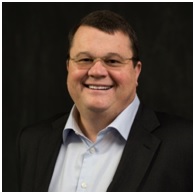 Maurizio Vecchione is the Sr. vice president for Global Good and Research at Intellectual Ventures in charge of the Global Good Fund. In this role, he oversees IV’s collaboration with Bill Gates to invent and deploy technology specifically focused on improving life in developing countries, as well as the Intellectual Ventures Laboratory and Institute for Disease Modeling. The Global Good Fund is the world’s largest investor in inventions for the benefit of the poorest three billion people on the planet, focusing on disruptive innovation in global health and global development for the benefit of humanity. Funded by the Bill and Melinda Gates Asset Trust and operating in coordination with the Bill and Melinda Gates Foundation, Global Good utilizes philanthropic funds to incubate and develop market driven companies that can produce catalytic humanitarian impacts while using market forces to scale up globally and across the 75 poorest nations on Earth. Global Good operates its own multidisciplinary research laboratory with relationships with over 4,000 research institutions globally, and the Institute for Disease Modeling to facilitate discovery and translational science in support of its investments. Major area of investment focus are diagnostic and clinical technology aimed at the top 10 global burden diseases, primary care health strengthening innovation, maternal and child health innovations, nutrition technologies, prevention including vaccines as well as agriculture and agricultural productivity technologies. With more than 30 years of experience in the technology and life sciences sector, Mr. Vecchione has helped build nine start-ups and launched more than 50 commercial products spanning life-sciences, health technologies, therapeutics and as well as telecommunications, information and material sciences. He most recently served as CEO of Arrogene, which is commercializing a new nanotechnology platform for cancer therapeutics and diagnostics, and as CEO of telemedicine pioneer CompuMed. As an inventor himself, Mr. Vecchione is named on multiple U.S. patents and patent applications related to imaging, image processing, nano-bio-polymer and telecommunications technologies.
Maurizio Vecchione is the Sr. vice president for Global Good and Research at Intellectual Ventures in charge of the Global Good Fund. In this role, he oversees IV’s collaboration with Bill Gates to invent and deploy technology specifically focused on improving life in developing countries, as well as the Intellectual Ventures Laboratory and Institute for Disease Modeling. The Global Good Fund is the world’s largest investor in inventions for the benefit of the poorest three billion people on the planet, focusing on disruptive innovation in global health and global development for the benefit of humanity. Funded by the Bill and Melinda Gates Asset Trust and operating in coordination with the Bill and Melinda Gates Foundation, Global Good utilizes philanthropic funds to incubate and develop market driven companies that can produce catalytic humanitarian impacts while using market forces to scale up globally and across the 75 poorest nations on Earth. Global Good operates its own multidisciplinary research laboratory with relationships with over 4,000 research institutions globally, and the Institute for Disease Modeling to facilitate discovery and translational science in support of its investments. Major area of investment focus are diagnostic and clinical technology aimed at the top 10 global burden diseases, primary care health strengthening innovation, maternal and child health innovations, nutrition technologies, prevention including vaccines as well as agriculture and agricultural productivity technologies. With more than 30 years of experience in the technology and life sciences sector, Mr. Vecchione has helped build nine start-ups and launched more than 50 commercial products spanning life-sciences, health technologies, therapeutics and as well as telecommunications, information and material sciences. He most recently served as CEO of Arrogene, which is commercializing a new nanotechnology platform for cancer therapeutics and diagnostics, and as CEO of telemedicine pioneer CompuMed. As an inventor himself, Mr. Vecchione is named on multiple U.S. patents and patent applications related to imaging, image processing, nano-bio-polymer and telecommunications technologies.




